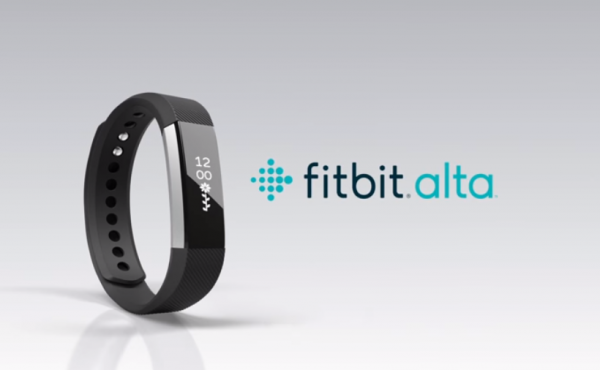Fitbit backfire: Woman shares her story of gaining weight with the device, and how she ditched both by “listening to her body” and sharing daily exercise with a friend
12/30/2017 / By Tracey Watson

If you received a FitBit as a Christmas gift, and you’re super excited because you believe it’s going to help you to lose tons of weight, the story of Fiona Benbow might give you pause. The 39-year-old mom of two actually gained 14 pounds in the month she used the device. That doesn’t mean you should throw your gift in the garbage, but there is definitely reason for caution.
After going through a divorce, Fiona was determined to lose weight. At 259 pounds, her weight was stable, but she couldn’t seem to lose any. She was excited to start using her FitBit – which measures the steps you take and calories burnt – convinced that it would help her to start shedding the pounds. She was shocked when instead of losing weight, she gained 14 pounds, ballooning to her highest ever weight of 273 pounds. Her waist expanded from a size 20 to a size 24.
While it might seem impossible that a fitness tracker would make you gain weight, it starts to make sense when you look more closely at Fiona’s story. She told the Daily Mail:
“If I walked a lot, the FitBit would typically tell me I’d burned around 3,000 calories. I remember one day I was shopping then went to a party in the evening and danced, and it told me I’d burned well over 4,000 – I couldn’t believe it! If the FitBit said I’d burned 3,000 calories I would reward myself with a family-sized chocolate bar or a huge sugary cake. According to its calculations, I was still burning off more energy than what I was putting into my body so I couldn’t see why I wasn’t losing weight.”
Fiona’s story is by no means unique. A study published in the Journal of the American Medical Association (JAMA) found that over the long-term, people who wore fitness trackers lost less weight than those who did not. (Related: Texas woman becomes weight loss sensation after ditching diets, losing 160 pounds with healthy food choices.)
The 470 people in the study were put on a low-calorie diet and asked to exercise more. They all started losing weight. Six months in, half the group members started self-reporting their diet and exercise. The other half were given fitness trackers to monitor their activity.
After two years, both groups were equally active. But the people with the fitness trackers lost less weight.
John Jakicic, a researcher of health and physical activity at the University of Pittsburgh and the study’s lead author, explained that people who use fitness devices reason to themselves that because they’ve done lots of exercise they can eat more, and that’s why they often end up gaining more weight rather than getting slimmer.
When approached for comment, Fitbit insisted:
We are confident in the positive results users have seen from the Fitbit platform, including our wearable devices.
Fiona’s story has a happy ending, though. After cleaning up her diet, listening to her body and starting to power walk with a friend every lunchtime, she has managed to drop her weight down to 168 pounds and is proud of her new size 12 figure. (Related: Finds tips and hacks that really work, such as having a workout buddy, at Slender.news.)
Oh, and she’s selling her Fitbit for money to buy workout gear!
Sources for this article include:
Tagged Under: exercise, exercise mindset, fitbit, fitness, mind body science, natural remedies, prevent disease, slender, tech gadgets, weight loss



















